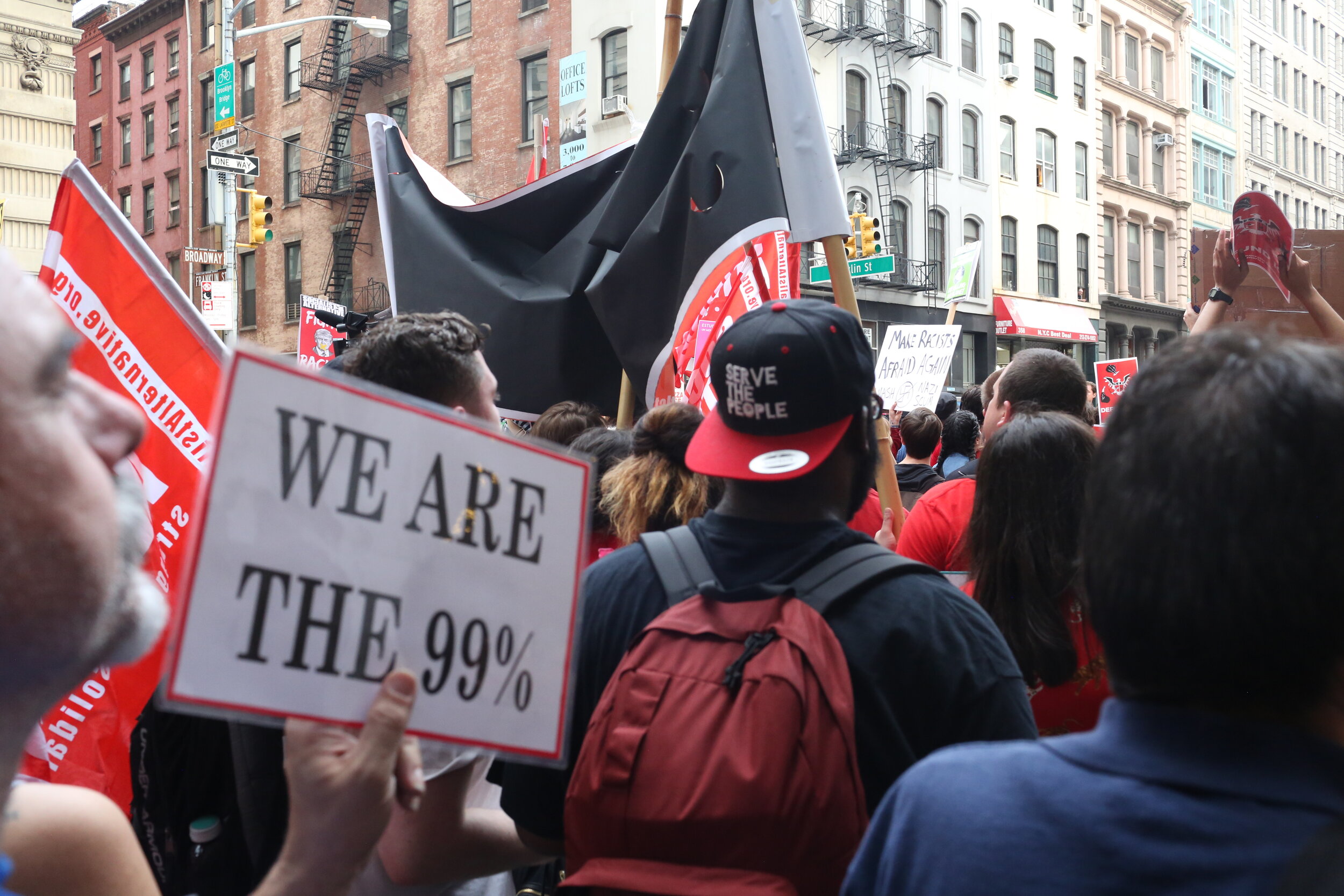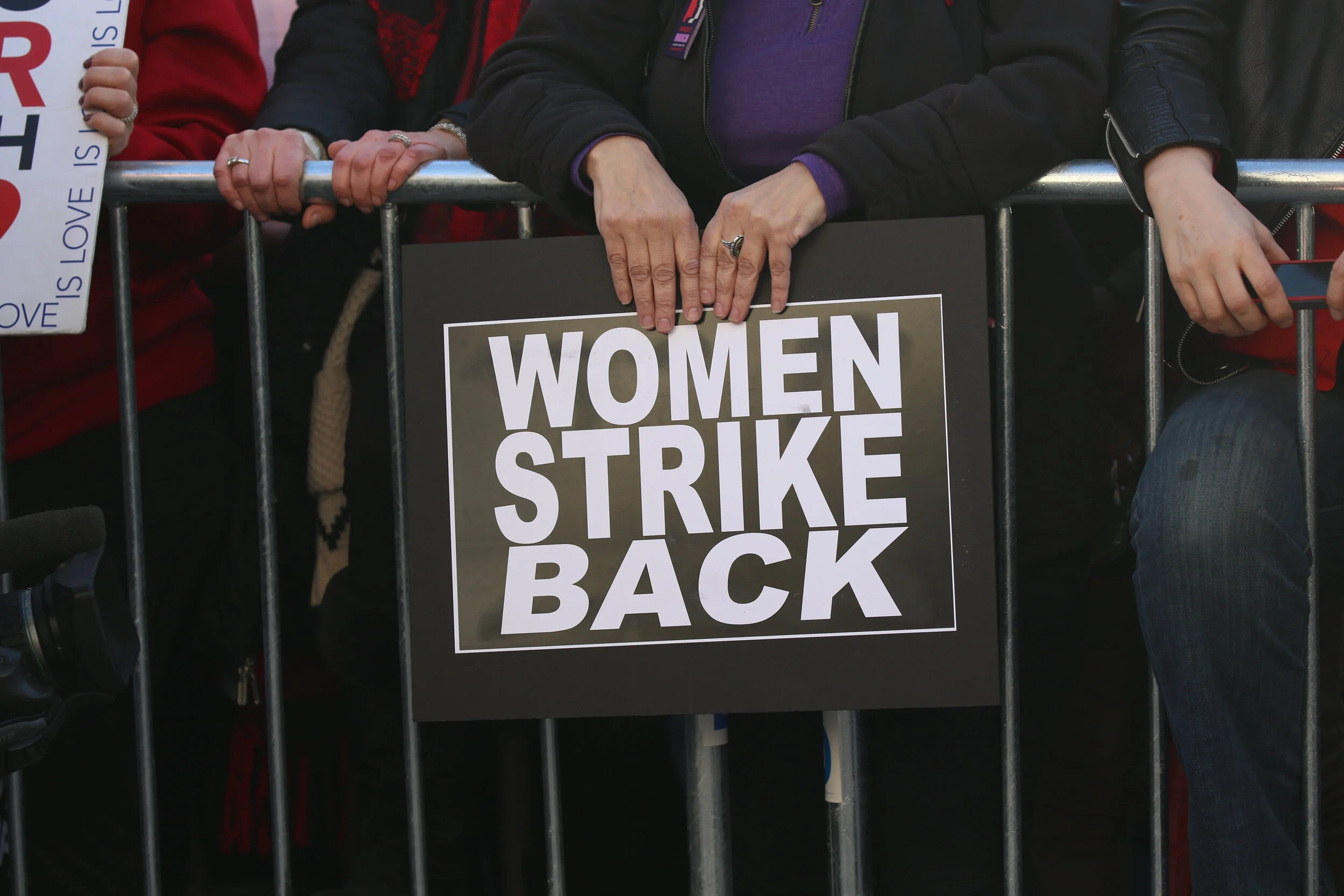Critical School is the institute for unlearning dominant paradigms. It empowers those who seek emancipatory knowledge employing dialectical materialism, critical theories, and social justice action plans.
Our Evolution
Critical School began in 2003 from an engagement of Marxist political thinkers in Maryland, US. We gradually facilitated several dialogues centering eurocentrism, delved into researches on subversive cultures, and participated in anti-war movements in Washington DC. In its current iteration, we have moved to the center of capitalistic contradictions - New York City. Involved variously in protests, forums, and processes of resistance in areas where class intersects with race, gender and immigration status, we infuse the missing elements of activism into academia, and educate through informed critiques of relevant theories.
“Thoughts that are actionable, understandable and critically important - so that the struggle against injustice is carried on with theoretical strength, and the newer thoughts of revolutionary tactics do not take form only inside the proverbial ivory towers.”
— Saswat pattanayak, FOUNDER
Are we really Free?
In a capitalist society, most of us assume our status to be ‘free’ when in reality we do not own the means to shape our respective lives. When confronted with this reality that permeates our everyday activities, we protest against injustice, and yet continue to duly serve the unjust masters.
Such internal, existential struggles in human lives have perhaps forever existed. Only rarely do they manifest in revolutionary mass actions - because the individual reconciliations with reality are far too tempting when a social consciousness is circumstantially disallowed. When the majority of people in every epoch of history has suffered at the hands of a small minority of owning class, consistent revolutionary engagements should be a no-brainer. And yet, not only does the ruling class keep the masses distracted with trivial, inconsequential news stories, the progressive intelligentsia also fails to adequately remind the world of the collective human struggles led by the economically poor to attain betterment for all. This is so because of the quest on part of progressive scholarship to conform to the capitalistic standards of success and fame, where the most illustrative figures crave awards from the elite institutions, not dialogues with the oppressed who are rendered as little more than research data.
In such a time where we need to employ lenses of social locations that are not exclusive only to the observer, it is imperative that we address ourselves to the critical thoughts that have still not abandoned the majority of the world. Thoughts that are actionable, understandable and critically important - so that the protest against injustice is carried on with theoretical strength, and the newer thoughts of revolutionary tactics do not take form only inside the proverbial ivory towers.
Serve the People
International Workers, Unite!
Our Mission
Critical School is predicated upon the following:
1. An incisive and painstakingly critical understanding of history alone can lead us to create a better future world.
2. Many “left” thoughts have left out the majority of potential actors from their deliberately inaccessible scripts. It is therefore important to dismantle impenetrable theories with an aim to render them useful - to make critical education a tool of empowerment for the most.
3. Critical education is a dialectical summation of canonic ideas as well as direct reflection of current movements. At Critical School, we aim to learn from and analyze the prevailing political climates of the day from the lenses of the struggling people.
80%
of the world population lives on less than $10 a day
75%
of those in extreme poverty are from Sub-Saharan Africa and Asia
22,000
children die each day due to poverty
Our Motivation
With poverty and homelessness continuing to ravage majority of humanity while only about one percent of world population enjoys unbridled opportunities and monopolizes over global resources, the urgency to challenge the status quo which privileges rich over the rest of us is becoming more apparent than ever. The world is more unequal today than ever before. And the need to end this is now. And it is not going to happen through political fairy tales floated by seasoned politicians who are themselves millionaires or those who hobnob with the corporate parties. The communication of empowering messages cannot any longer be vertical and top-down. It has to be a result of academic rigor that is rooted in ordinary people’s own histories of resistance that transcends petty electoral aspirations.
★ The top .01% (14,000) families in the U.S. now own 22.2% of the nation’s wealth, while the bottom 90% (around 133 million) families, a mere 4%.
★ Out of 7.8 billion people in the world today, 1.3 billion live on less that $1 per day. 70% of these people are women and girls. One half of the world population lives on less than $2 per day. 160 million live on less than 50 cents. At least 80% of humanity lives on less than $10 a day.
★ The World Health Organization estimates that 1/3 of the world population is well-fed, 1/3 is under-fed, and 1/3 is starving.
★ Nearly a billion people entered the 21st century unable to read or write.
★ A quarter of the world population lives without electricity.
★ The GDP of the 41 Heavily Indebted Poor Countries (567 million people) is less than the wealth of the world's 7 richest people combined.
★ Approximately half the world's population lives in cities and towns. One out of three of urban dwellers lives in slum conditions, approximately 1 billion or 1/6 of the world's population.
★ In 2007, there were about 14 million refugees and 26 million internally displaced people in more than 50 countries. By 2018, the world had over 30 million refugees, and and unprecedented 71 million displaced people.
★ 12 million people die each year from lack of water, including 3 million children from water-born disease. 1.1 billion lack access to clean water; 2.6 billion live without decent sanitation; 4 billion without waste water disposal-that's approximately 1/6, 1/3 and 2/3 of the world's population respectively. The poorest 10% accounted for .5% and the wealthiest 10% for 59% of all consumption.
★ In 2007 global GDP was $47 trillion. The top 250 companies in the world had combined sales of $14.87 trillion, that's 1/3 of global GDP and exceeds the GDP of the USA and EU. The combined sales of the top 5 companies of $1.5 trillion was larger than the GDP of all but 7 countries. By 2019, the global GDP has increased to 142 trillion USD and yet the unequal share has continued to rise. The world’s 500 largest companies have generated $30 trillion in revenues and $1.9 trillion in profits alone.
★ One Measure of the Bubble: Before the economic recession, the gross amount of financial transactions amounted to two thousand trillion dollars, while the world GDP was only 44 thousand trillion.
★ The UN Development program estimates that only $13 billion is what is needed to provide for the health and nutritional needs of the world's poorest people. Before the Great Recession of 2008, there were around 1000 billionaires in the world - and in 2020, the number has increased to 2,095! The net worth of the richest thousand or so is over twice that of the poorest 2.5 billion people on the earth. The poorest 10% account for .5% and the wealthiest 10% for 59% of all consumption.
Get Involved
If you live in or near New York City, get in touch with us to join the school. We hold monthly classes in Astoria, Queens. In the phase following Covid19, we have more opportunities to keep you engaged through newsletters, mailing lists, and online classes. If you would like to participate in our classroom, or wish to donate to encourage our efforts, or if you simply want to drop a line, please reach out.


